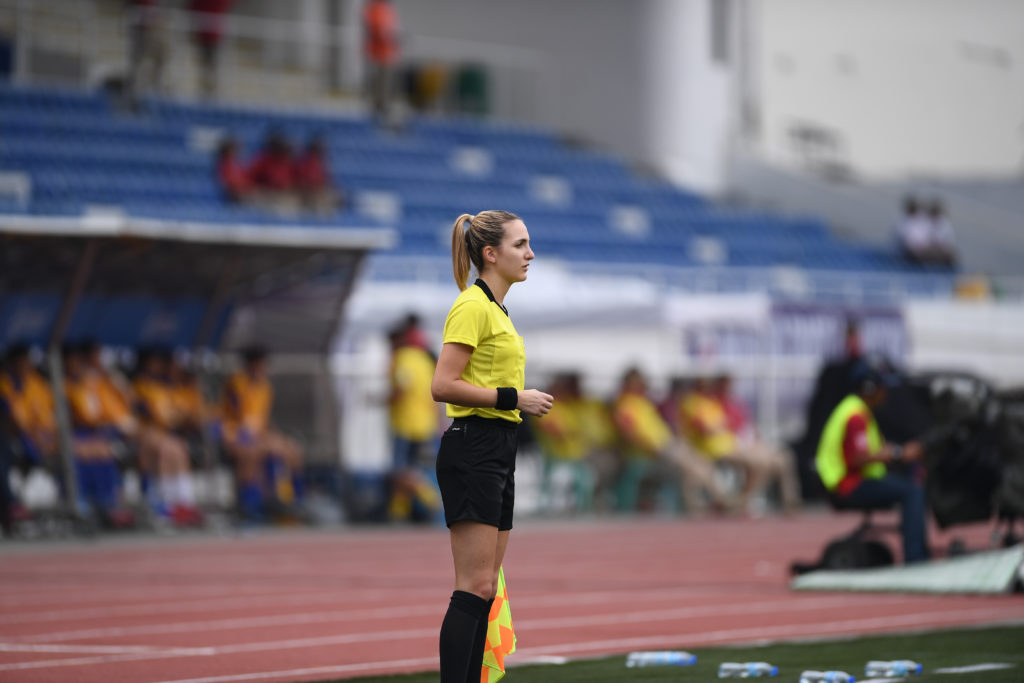How many times have you imagined failing, making mistakes, or losing out on promotion or a key appointment?
How many times have you visualised performing at your peak out in the middle, succeeding, or achieving your best mark?
Chances are you see images of failing to deliver games more often than succeeding to. Negative images seem to flow easily and freely into your mind.
Negative internal images are accompanied by negative self-talk and unproductive emotions, intensifying those images and bringing to life your fears of what might happen.
Negative self-fulfilling prophecies occur when you talk yourself into negative outcomes. The negative images you see feel real. The negative emotions are intense.
The Baseball Example
When visualising playing Baseball, you can vividly see yourself in the batter’s box with the bases packed in the ninth innings of a level game. You can feel your shoulders tighten.
You see your family in the stands as they nervously look on. You can feel the pressure and you see yourself being overawed by a baseball straight down the throat of the plate for strike three. You feel the disappointment of your teammates as you head back to the dugout. The frustration feels real.
When visualising playing Basketball, you can feel the nerves heading into the fourth quarter of a playoff match. You vividly see yourself on the free throw line with the opposing fans frantically waving their arms and yelling, “MISS!” You can feel your heart pounding and the sweat pouring off your forehead.
You see yourself hitting the front end of the rim and missing the first free throw shot with your team trailing by two.
Strong Images That Set You up For Failure
You can set yourself up for success by actively producing positive images through visualisation.
Taking an active role in consciously forming successful images can lead to a positive self-fulfilling prophecy.
Visualisation is seeing the specific images of a successful outcome (seeing the foul in the penalty area and awarding the spot kick or seeing yourself with a confident body posture controlling the game with a big presence).
Visualisation is actively feeling positive emotions (confidence, calm and joy) throughout the imaged experience.
Visualisation is actively creating the full successful experience using all your senses.
Visualisation is experiencing, in vivid detail, what you want to happen and how you want to feel.
The Swimmer’s Perspective
In an interview, 21-time United States National Collegiate Athletics Association American swimmer, Erika Brown, espoused the benefits of visualisation and its contribution to her success.
“In practice we do a lot of video work and I love just looking at that, comparing it to other people, comparing it to my other swims and then using that to visualise for my races. I definitely use visualisation before anytime that I race and just in life. I think it’s important if you set goals and you want to achieve something, you have to see yourself there.” – Erika Brown, 21-time United States National Collegiate Athletics Association American Swimmer
When you visualise, you imprint those images into your mind. Visualisation is like you are training twice, once physically and once mentally.
Visualisation gives you the boost in confidence that you have the ability to reproduce those successful images.
How to Visualise Successful Matchday Performances
The key for making visualisation a successful positive experience is to include all the senses:
- What would you see?
- What would your body feel like as you officiated out in the middle?
- What would you smell and taste?
- What sounds would you hear during the fixture?
- What emotions would you experience?
Visualise within your current skill level. Don’t try to visualise something that you can’t complete successfully in practice at least 7 of 10 times.
At The Third Team I work individually and in collaboration with different professionals where I have developed workshops and 1-2-1 sessions associated with Resilience and Mental Toughness Development to help referees. The workshops and 1-2-1 sessions are interactive, where referees are encouraged to open up and share their experiences to help themselves and each other.
Feel free to contact me if you’d like to know more about my workshops or 1-2-1 sessions and how I could help you or your officials.
Best Wishes,

Nathan Sherratt
Referee Educator & Managing Director of The Third Team

Nathan Sherratt
Nathan Sherratt, Referee Educator, Resilience Trainer and Managing Director of The Third Team. A Mental Toughness Practitioner based in County Durham, North East England.

